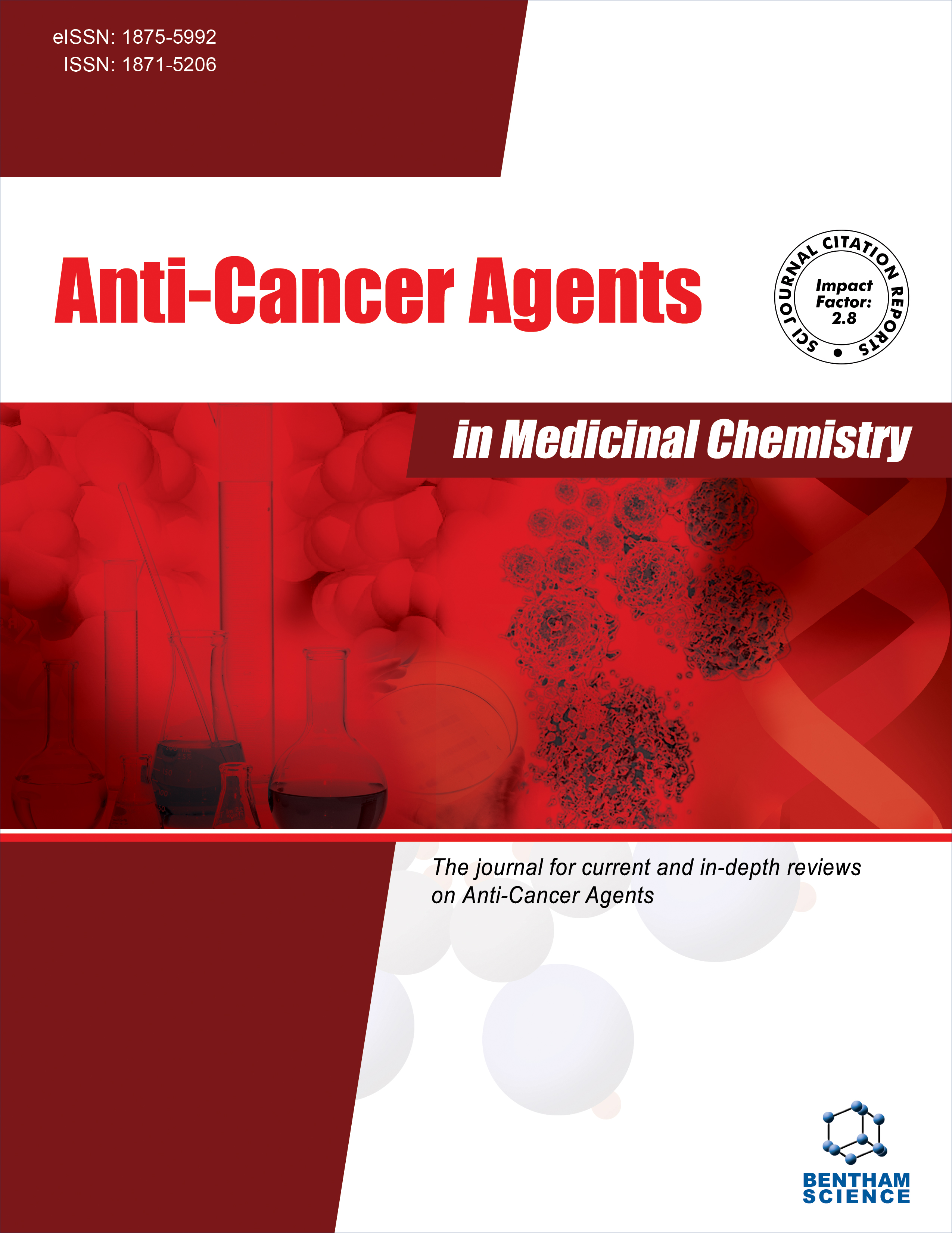-
oa Editorial [ Hot Topic:Recent Concepts on Cancer- and Metastasis-Initiating Cells and Their Therapeutic Implications in the Development of Novel Effective Cancer Therapies(Guest Editors: M. Mimeault and S.K. Batra) ]
- Source: Anti-Cancer Agents in Medicinal Chemistry, Volume 10, Issue 2, Feb 2010, p. 103 - 103
-
- 01 Feb 2010
Abstract
New concepts on carcinogenesis process suggest that the malignant transformation of adult stem/progenitor cells and/or their progenies endowed with stem cell-like properties into highly leukemic or tumorigenic cancer stem/progenitor cells may provide critical functions in cancer initiation and progression to locally invasive and metastatic cancers, treatment resistance and disease relapse [1, 2]. In support with this hypothesis, the cancer stem/progenitor cells, also designated as cancer-, leukemia-, tumor- or metastasis-initiating cells endowed with stem cell-like properties have been identified and isolated from a variety of human primary and metastatic cancers and established cancer cell lines [1, 2]. It has been shown that these immature cancer cells with high self-renewal potential and aberrant differentiation ability were able to giving rise to the total cancer cell mass that recapitalized the histological and cytological architecture of original patient's leukemias or tumors [1, 2]. In addition, numerous accumulating lines of experimental evidence have also revealed that the resistance of cancer stem/progenitor cells to current anti-hormonal, radiation and chemotherapeutic treatments may lead to their persistence at the primary cancers and metastatic sites after therapy initiation and disease recurrence [1, 2]. Therefore, the development of novel targeted approaches to eradicating the total cancer cell mass, including highly leukemic or tumorigenic cancer stem/progenitor cells and their progenies, is of immense clinical interest for improving current cancer treatments. These novel combination therapies should be effective to treat the patients diagnosed with advanced cancers, and thereby prevent disease relapse and the death of cancer patients [2]. In this special issue, the experimented researchers specialized on different aspects related to carcinogenesis process and drug development research will review for us the most recent advancements on the identification of immature cancer cells with the stem cell-like properties in different aggressive and recurrent cancer types. The therapeutic implications of these recent progresses for the development of novel effective cancer therapies will also be discussed. More specifically, novel potential therapeutic drug targets in cancer- and metastasis-initiating cells and their progenies and important foundings in the development of novel pharmacological agents for eradicating the cancer stem/progenitor cells and improving the current clinical cancer treatments will be reviewed. The subtopics covering in this special issue include leukemia-initiating cells (acute myeloid leukemia “AML” and chronic myeloid leukemia “CML”) as well as diverse tumor- and metastasis-initiating cells involved in multiple myeloma, brain and melanoma and diverse epithelial tumors such as prostate, pancreas, breast, ovarian, lung and liver cancers. Especially, the emphasis is on the critical functions of these immature cells in cancer initiation and progression, metastases at distant tissues, treatment resistance and disease relapse. Of therapeutic interest, potential therapeutic drug targets in cancer-initiating cells and novel targeted therapies and combination cancer therapies will be reviewed. Moreover, the importance to also consider the molecular targeting of host tumor microenvironment of cancer stem/progenitor cells is also discussed. Other promising therapeutic approaches to treat cancer patients discussed in this special issue also include novel stem cellbased cancer therapies, selective delivery strategies of anti-cancer drugs (nanoparticule- and liposome-based systems), anti-angiogenic treatments and immunotherapies. Taken together, information provided in this special issue should help researchers to develop novel combination therapies by molecular targeting of both highly tumorigenic cancer stem/progenitor cells and their progenies for a most effective treatment of cancer patients diagnosed at early and late stages with aggressive, metastatic and lethal cancers.


